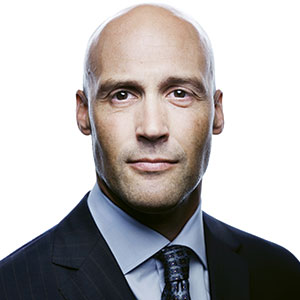So much preparation goes into selling their business that founders often do not spend enough time thinking about how things will change once they take on a private equity firm as a business partner. That can include how the private equity firm intends to support the founder, how decisions will be made and how the founder’s weekly schedule will change as a result of the partnership.
Founders are like mavericks. They have incredible amounts of self-confidence, an independent streak and a history of making quick decisions based on their gut feel. Founders surround themselves with employees who are inspired by their achievements and therefore are rarely challenged by them. While private equity firms will accommodate founders to a degree, the best private equity firms have their own formula for success and rarely deviate because investors like firms with a repeatable process that consistently generates above benchmark return. Founders should be open minded because the private equity firm has developed methods to greatly increase the likelihood of success for the partnership.
When working with private equity, decisions are no longer made by gut feel. At Evolution, we infuse governance immediately into the partnership, and highlight to the founder that the same standard applies to us, so we won’t make decisions without their input, either.
Also, the whole cadence of the organization will change. The private equity firm will want to be included in meetings where decisions are being made, and usually at set times during the week.
Additionally, the financial and operational reporting will significantly increase. Private equity firms devour information to help support the decision-making process. The volume of reporting and the frequency will both increase.
Finally, the decisions regarding the people and their incentive compensation will be professionalized and structured. Private equity runs on incentives to drive performance. When a CEO is suddenly two or three people removed from the ultimate decision-makers, there can be a disconnect between a founder’s favored employee and what the private equity firm thinks of that same employee.
There are many factors that drive these changes, including the private equity firm’s repeatable process. But it is also the timeline on which a private equity firm has to work. Private equity needs to get done in five years what many nonprivate-equity owned firms do in 10 years or more. This sets up the last big point founders need to consider: The pace. Many times, employees of lifestyle businesses don’t understand what the rush is and why the cadence of the organization ramps up significantly. Many employees will voluntarily resign because that level of effort and time commitment is not what they signed up for.
The items mentioned here are a big deal. Founders not only need to think about themselves but also about their employees. Nothing going forward will be the same. Fortunately, the private equity firms have evolved. They are much more conscientious of culture, taking care of those existing employees who do step up and want something more. Private equity today arguably is more generous than founders had been previously but in return are expecting more. The sooner the founder reconciles these important changes and the more aggressive timeline, the better prepared the founder and employees will be, increasing the likelihood of success for the partnership. ●
Jeffrey Kadlic is Founding Partner of Evolution Capital Partners

